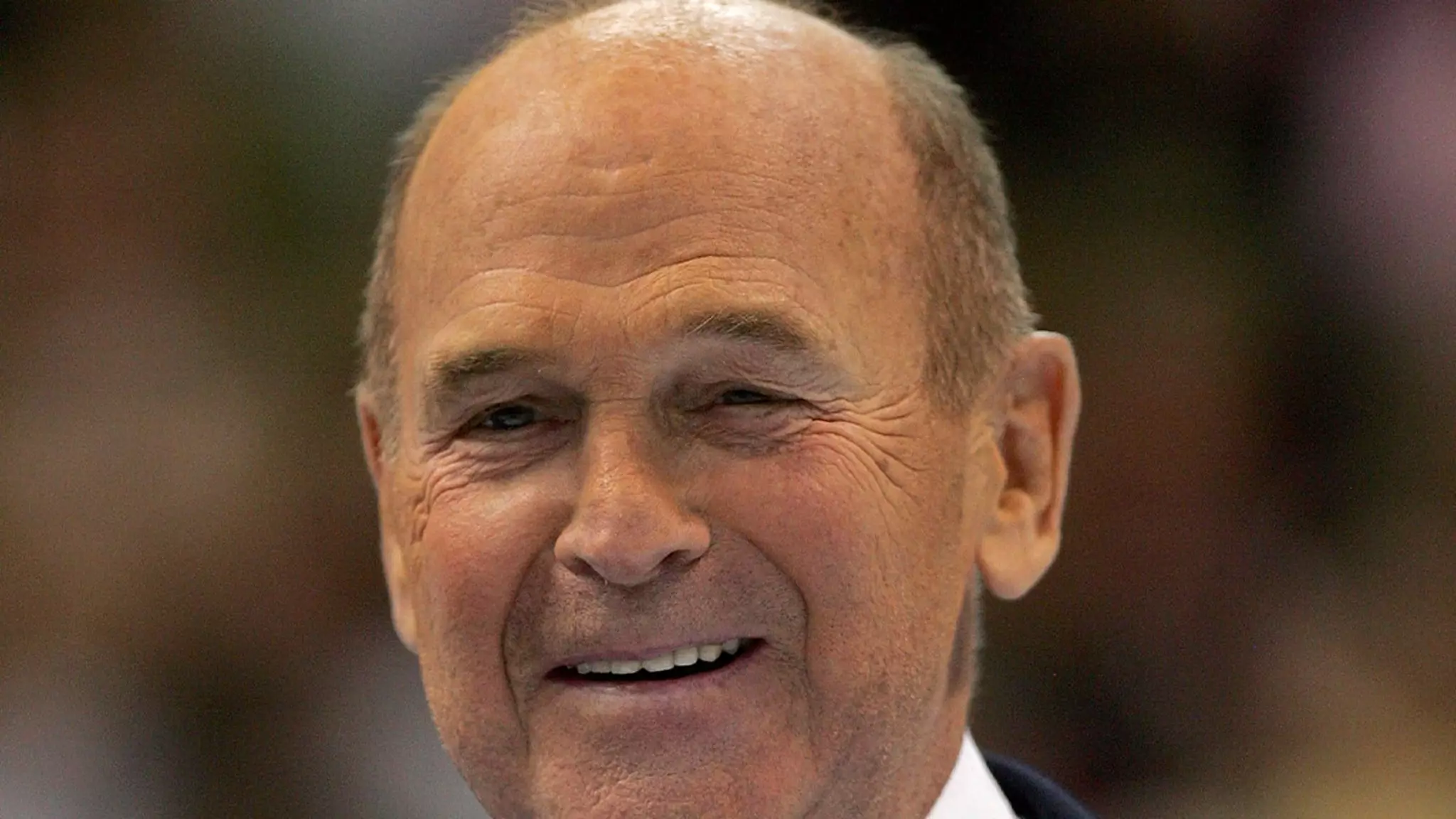The figure skating community is reeling from the recent loss of Dick Button, a monumental figure who not only carved out his own legacy but also fundamentally transformed the sport in the United States. Button, who passed away in North Salem, Upstate New York, at the age of 95, left behind an indelible mark on both the competitive and broadcasting aspects of figure skating. His death was poignantly timed, coinciding with a day of mourning for the tragic loss of young athletes in a plane crash involving American Airlines 5342, bringing further sorrow to an already grief-stricken community.
Dick Button’s influence in figure skating dates back to the 1940s and 1950s when he emerged as a dominant force. He was the first American male skater to win Olympic gold and is remembered for his extraordinary achievements, including five consecutive world titles beginning in 1948. This groundbreaking victory not only showcased his exceptional talent but also placed the United States firmly on the global figure skating map during an era when Europe reigned supreme in the sport.
Button’s tenure as a competitor was marked by moments that redefined the landscape of figure skating. Most notably, at the 1952 Winter Olympics in Oslo, he made history as the first person to successfully land a triple jump in competition. This not only highlighted his technical prowess but also laid the groundwork for future skaters to push the boundaries of the sport. Through fierce competition and a strong will, Button inspired countless athletes to dream big and strive for excellence on the ice.
Upon his retirement from competitive skating, Button transitioned into a successful broadcasting career that spanned several decades. Beginning in 1960, he became a familiar voice on CBS during the Winter Olympics and later volunteered his insights on ABC’s “Wide World of Sports.” His no-nonsense approach and candid critiques added a refreshing authenticity to sports commentary. Button wasn’t afraid to speak his mind, notably referring to distressingly poor performances in candid terms, which some considered refreshing in a world often clouded by politeness and diplomacy. His straightforwardness earned him respect and affection from viewers who appreciated his honesty and passion for the sport.
As a commentator, he was instrumental in bringing figure skating from the periphery to the spotlight, engaging audiences with his knowledge and charisma. His tenure as a commentator allowed him to remain close to the sport he adored, mentoring budding athletes and shaping the public’s understanding of figure skating. He forged a connection that transcended generations, influencing both fans and skaters alike.
Dick Button’s achievements are impressive and unparalleled in U.S. figure skating history. He holds two Olympic gold medals along with seven national championships, records that continue to stand as a testament to his unparalleled talent and hard work. While many can look back at their careers with pride, Button’s legacy is unique: he successfully opened doors for future generations while uplifting the sport he so passionately loved.
The legacy of Dick Button is an inspiration for skaters and sports enthusiasts alike. Not only did he pave the way for American athletes on the global stage, but his passion and advocacy for figure skating helped shape its identity in the United States. In light of his passing, it’s essential to reflect on what he has contributed: a reminder that greatness is not only defined by accolades but also by the advancement of one’s sport and the inspiration of others to dream.
Button’s unparalleled journey from a young child mastering his craft to becoming an iconic figure serves as a powerful narrative in the world of sports. As the figure skating community mourns his passing, they also celebrate a titan whose spirit will remain alive on the ice for years to come.

